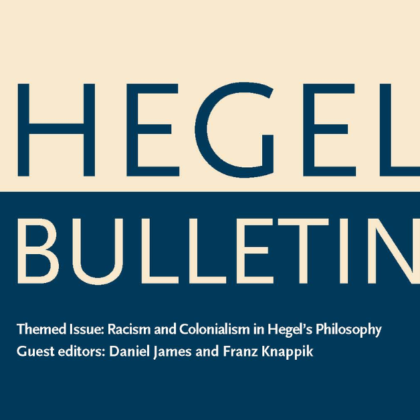Shaping, not Describing: Assessing Charles Taylor’s Philosophy of Language
In his recent monograph, the renowned philosopher Charles Taylor targets genuinely big issues: What is the nature of language? What makes us human? What are the viable courses and dead ends of a modern philosophy of language? Taylor’s endeavour to address those questions in his book are encapsulated in the eponymous notion of what we as humans are: a “Language Animal.”
This is not a book just anyone could have written, and it’s fair to say that its relevance is amplified by being a Taylor-book. While it is thoroughly distorting and inappropriate to judge the importance of a philosopher by the honours he or she received, it gives a rough indication of the pervasiveness of a certain thinking. Thus, it’s safe to say that Taylor’s seminal and manifold oeuvre attracted attention of a world-wide philosophical community as well as the general public: he is winner of a whole host of major philosophical prizes, which may be seen to some extent as ‘lifetime achievement awards,’ such as the Kyoto Prize, the Templeton Prize, the Hegel Prize, the John W. Kluge Prize and, most lately, the Berggruen Prize for Philosophy.
How does this relate to the latest instalment of Taylor’s philosophy? In some sense, The Language Animal draws a balance of several decades of academic work, making tangible how fundamental the role of language is in the multi-layered work of Taylor. Regarding the philosophical tradition, Taylor situates the book’s approach by rejecting the supremacy of the rational empiricist tradition, namely Hobbes, Locke, Condillac (or linguistic reductionism), and is instead siding with the German Romantics, namely Hamann, Herder, and Humboldt (or linguistic holism). In a nutshell, the book is about how our human linguistic capacity continuously develops new ways of being without ever reaching a definite end. This view stands in strong opposition to a vast number of approaches to the philosophy of language, which claim that the essence of language is to be found in its purpose to describe the world. Taylor, on the other hand, argues vigorously that there is no world that merely needs description, but that our world actually emerges from our practical use of language, thereby continuously interpreting, creating, and shaping that very world.
In short: it is a book that is worth assessing. And that is precisely what happened in the first Symposium worldwide on The Language Animal in June 2016 at the Max Weber Centre for Advanced Social and Cultural Studies in Erfurt, Germany, organised by Ulf Bohmann and Gesche Keding. It became a singular opportunity to discuss the book with the author himself. The outcome can now be read in a special issue of Dialogue – Canadian Philosophical Review (2017, 56(4)). Besides the detailed Introduction to the book (elaborate commentaries by experts on Taylor’s thought, ranging thematically from the relation of concepts and emotions over to role of performative speech to the passive side of the human condition. To give two examples: Keding discusses in her “Metaphors and Paradigms of the Language Animal” (693-704) the figuring dimension of language. Picking up on Taylor’s example ‘Time Is a Resource,’ she argues that it is understood more deeply if seen as a paradigm, i.e., a set of beliefs and practices, instead of as a ‘structural template,’ i.e., rooted in embodiment. In a very different vein, Bohmann proceeds in his “Narrative, History, Critique” (717-729) in three consecutive steps: he problematises Taylor’s distinction between laws and stories when it comes to understanding social life, addresses his intentional blurring of stories and histories, and concludes by suggesting that the concept of genealogy might be a promising candidate for describing Taylor’s approach on narration. Needless to say, the culmination of this special issue is the reply by Charles Taylor (731-743), defending his position, clarifying issues, and developing ideas further.
The Introduction of the special issue, the papers of Keding and Bohmann, as well as the reply by Charles Taylor, are now available for free until 10 May 2018.







That a man is an ”’ talkable animal” it is true. Many of the registers of the language guide us to that opinion. And a mechanism of language we need and produce is a special question